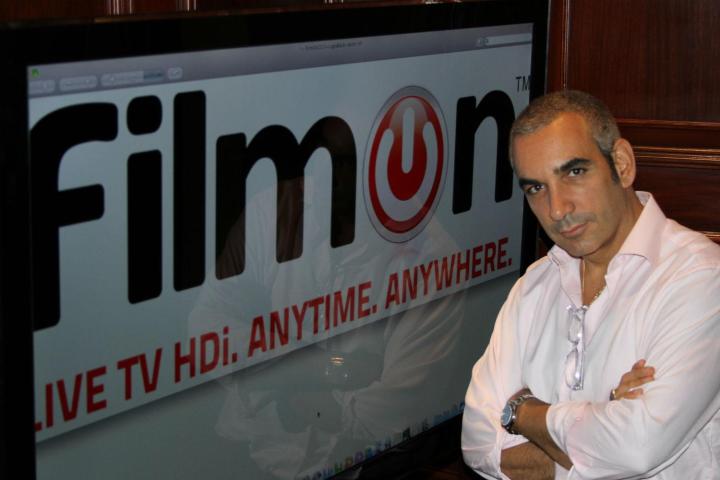
FilmOn, previously known as AereoKiller, has a contentious past in the over-the-top (OTT) industry, as does its outspoken CEO, Alki David. The service, known anecdotally as an Aereo copycat, started around the same time as Aereo, both of which began by offering retransmission of network broadcasts over the Web via tiny antennae. Both services have also been under a constant assault of litigation from major networks for their efforts, including parent companies for Fox, NBC, CBS, ABC, and even PBS.
However, FilmOn tasted more defeat than victory early on in comparison to its rival. Suffering losses in both California, and a nationwide injunction in Washington, DC, FilmOn has thus far stayed in business mainly due to courtroom victories for Aereo, whose right to remain in operation was upheld by decisions in New York and Boston. Those legal precedents helped keep both services from being shuttered outright, while, on the flipside, FilmOn’s string of losses put both services in peril, and helped lead up to Aereo’s eventual defeat in the Supreme Court.
Seemingly undeterred, FilmOn has charted a new course. While Aereo has consistently maintained that paying licensing fees would put it out of business, according to MCN, FilmOn has stated that it is willing to pay up to stay online. FilmOn’s David goes on to say that, since Justice Breyer’s majority decision compared Aereo to a cable provider, the service will begin to act like a cable company, calling the Court’s comparison a “very clear designation.”
“If it functions like a cable company, it should be treated like a cable company,” David writes. “FilmOn meets all the criteria.”
The company said it has filed with the U.S. copyright office for the right to license broadcast content. However, while it is painting itself as a new kind of cable company, the service is reportedly looking to pay a different sort of licensing fee than cable providers: one that is tied to Copyright law, as opposed to the Communications Act, which provides the basis for the fees paid by providers like Comcast and Time Warner. In true FilmOn form, the service’s legal arguments are as clear as mud.
To make things even more complicated, FilmOn initiated a transition of its services from its antennae-based technology to a new broadcast method it calls “Teleport Technology” in February. Teleport Technology provides users with access to a network of hundreds of thousands of antenna-equipped remote desktop computers, ostensibly renting access to the devices instead of the antennae, which creates even more questions about its legality.
Even as it vows to go legit, however, given FilmOn’s legal history, it is unlikely to remain out of hot water for long. The FCC hasn’t yet made a clear designation of which licensing fees will pertain to over the top (OTT) services such as FilmOn, and the company’s even more brazen Teleport Technology is likely to be under fire at any given moment. In fact, a lawyer for the broadcasters, John Hune, told Gigaom’s Jeff John Roberts on Monday that FilmOn is “definitely not a cable company,” and can expect another lawsuit.
Whether or not FilmOn’s enigmatic leader, Alki David, is really serious about creating a new type of “cable” provider with his service, or simply looking to be a thorn in the side of broadcasters, remains to be seen.
Perhaps the biggest lesson to take away is that technology is moving faster and in more complicated ways than legal precedence, and even the experts in the field don’t seem to understand where the lines of the law come down. Even after Aereo’s defeat, the future of exactly how we will get our entertainment amidst the litany of power struggles and rapidly evolving technologies is anyone’s guess. FilmOn, and others, seem ready and willing to push the industry into uncharted territory.
We’ll follow this story as it develops, so stay tuned.


